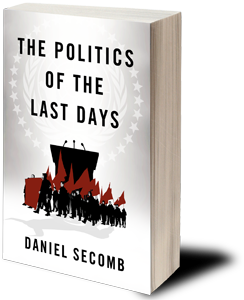The BBC has said in a report the Department for Education (DfE) should recruit an extra 68,000 teachers from black and minority ethnic (BME) backgrounds so as to reflect England’s pupil demographics.
“Just 13% of state-funded schools’ teachers are currently from a BME background, compared to 27% of pupils,” laments BBC News, reporting that its analysis of DfE figures for 2016 “found the number of BME teachers would need to double to accurately reflect the ethnic make-up of the state school pupil population in England”.
Janet Sheriff, who the BBC says is the only BME secondary school head teacher in Leeds — where nearly 30 per cent of pupils are non-white — told the public broadcaster that upping the percentage of BME teachers is “an enormous challenge for the whole education system.
“It’s vitally important that as our communities become more multicultural our schools reflect the areas where our children grow up,” she said, adding: “I do feel that when schools appoint teachers, there is an unconscious bias where white teachers are often the preferred candidate.”
According to the National Association of Schoolmasters Union of Women Teachers (NASUWT), ethnic minority teachers “face discrimination and prejudice when applying for jobs, but the BBC reports that BME teachers say young people from a similar background “have historically preferred to enter other professions such as medicine or science.”
In a recent report, the teaching union warned that non-white teachers’ have their careers blighted by “deep-rooted, endemic and institutional racism” in British schools.
NASUWT general secretary Chris Keates said: “BME teachers are, on average, paid less than their peers, commonly face discrimination and prejudice when applying for jobs.
“Schools and pupils are losing out on the talents and skills of BME teachers who are unable to advance their careers or who opt for a different profession due to the barriers being placed in their way.”
A spokesman for the DfE said the proportion of teachers with minority ethnic backgrounds has steadily increased, adding: “We also provide a range of support to teachers from black and ethnic minority backgrounds such as the Leadership, Equality and Diversity Fund.”
UKIP education spokesman David Kurten, himself a former teacher from a BME background, blasted NASUWT’s call for demographics among teaching staff to reflect that of pupils as “politically correct virtue signalling”, adding: “[The union’s] claim that the teaching profession is infused with deep-rooted institutional racism is bogus.
“As the proportion of children from different countries and backgrounds increase it is more important than ever to abandon outdated multiculturalism, and embrace teaching that encourages integration,” the London Assembly member said.
The exams regulator Ofqual and schools watchdog Ofsted came under fire this week after new research blasted the lack of racial diversity on their boards.
Speaking on findings contained in a new report from executive search firm Green Park, the incoming principal of Oxford’s Somerville College, Baroness Janet Royall, said it is “shocking” that the UK has failed to “attract and harness adequate levels of diverse talent to help mend the escalating lack of trust within [schools and universities].
“The education sector, a sector whose sole purpose it is to provide knowledge, understanding and skills to future generations, is still failing at diversity; a proven pathway to greater innovation and compassionate ability.”
While it is frequently claimed that ethnic and gender diversity has a positive effect on how business and companies function, experts Alison Reynolds and David Lewis said their research found that it’s cognitive — not identity-based — diversity that improves a team’s performance.
“Received wisdom is that the more diverse the teams in terms of age, ethnicity, and gender, the more creative and productive they are likely to be,” the pair noted earlier this year, writing in Harvard Business Review.
“But having run the execution exercise around the world more than 100 times over the last 12 years, we have found no correlation between this type of diversity and performance.”
In their research, Reynolds and Lewis said they found “significant correlation between high cognitive diversity and high performance.”
Explaining that cognitive diversity “has been defined as differences in perspective or information processing styles,” the pair said the phenomenon “is not predicted by factors such as gender, ethnicity, or age.”
Source: Breitbart
 Register your interest for Daniel Secomb's new book, "Politics of the Last Days"
Register your interest for Daniel Secomb's new book, "Politics of the Last Days"
Daniel's new book explores the integral and fascinating role that politics will play in the end times.
He demonstrates that political philosophy is actually underpinned by biblcal principles and that by examining the political history of the past can give us a fascinating glimpse into how Biblical end times events will unfold.
Be sure to sign up with your name and email address to be notified of updates and the upcoming release date of the book.


















